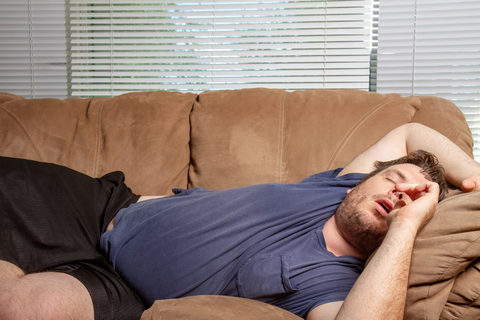Votre panier est vide
The Truth Behind Your Gut Health And Weight Loss

According to the World Health Organization (WHO), 30% of the world population is battling complication related to being obese or overweight.
This translates into over 2 billion people. The WHO also reports that over the last 3 decades, no single country in the world has managed to rein in this problem.
There are many reasons floated out there to explain why weight loss plans fail, and these vary from one individual to the other.
However, gut issues are considered to be some of the biggest hindrances to weight loss efforts, and there is a whole ton of scientific evidence to explain that. In this piece, we are taking a look at how your gut health and weight loss are intertwined.
1. Low Numbers and a Lack of Diversity in Your Bacteria Contributes To Obesity
Researchers at the Washington University in St. Louis conducted a study to establish the relationship between gut flora and weight gain of two clusters of people, with one being lean and the other overweight. Not surprisingly, they found out that the lean group had a lot more microbes in their bodies than their obese or overweight counterparts.
The implication here is that that if you have a diversity of gut bacteria and the numbers in your system are good enough, then your weight loss attempts have a high chance of succeeding. Gut flora and weight gain is
2. Bad Bacteria Has a Way of Disorienting Your Hormones

Binge eating is one of the biggest causes of random weight gain. How frequently we eat and how much food we consume at a go is determined by how hungry we feel. It is now understood that some kinds of bacteria are responsible for the release of hormones that cause cravings and stimulate the feeling that your stomach isn’t full. This hormone is known as ghrelins.
In a study involving mice, the results indicated a rather interesting phenomenon; when the subjects ate high fat diets, their bodies produced acetate, which in turn upped up the levels of insulin and ghrelin in their bodies. The result was obesity and increased insulin resistance.
Otherwise, these hormones have you scrambling for a Mexican every ten minutes or so, and that is bad news for your weight loss regimen. You have to know how to stop eating when not hungry.
3. Leaky Gut Allows Toxins to Enter, Which Messes up Your Metabolism
Walking around with unbalanced gut microbiome has wide-raging problems. One of these problems is a leaky gut, which is as definitive as anything can get-holes develop in your gut, and this could lead to its contents spilling into your bloodstream without having undergone a purification process.
When your gut starts to leak, your digestive system becomes vulnerable and can never correctly filter substances, and this harms your attempts to lose weight. These leaks also cause a wide range of diseases, all the way from type 1 diabetes to headaches and fatigue.

4. Slow Metabolism Causes Plenty of Problems as Well
If your metabolic processes are slow, then you are going to suffer a series of snags in your attempts to lose weight. When your gut processes food substances too slowly, you find yourself eating more food than the system can process at a go. This makes it harder to break food down and absorb nutrients.
For example, people who eat foot high in fat and sugar and have high metabolism rates have no problems keeping their weight down. Those who eat the same food and have a low metabolic rate have to put up with a slow rate of the breakdown of these food substances, and the inevitable result is an ever-expanding waistline.
5. Gut Inflammation Causes More Fat to Be Stored in Your System
This state of affair is prevalent in obese people and does nothing to help them toward their weight loss goals. Intestinal inflammation is thought to be more common among people whose obesity has been induced by diet. When your gut is inflamed, parts of its organs swell up and a systemic dysfunction kicks in.
This deterioration can be halted, but most of the times, people only notice it after significant weight gain. This kind of inflammation has also been pointed out as a major causative agent of insulin resistance, which could then devolve into prediabetes or type 2 diabetes.
6. Modern Solutions Such as Probiotics Might Be of Help

Simply put, the work of a probiotic is to increase the numbers as well as diversity of flora in your gut. Keep in mind that not all products put out there will get this done-there are many fakes in the market, so be on the lookout.
Moving on, there is a whole bunch of probiotics you can access any time, and a good number of them come in the form of supplements.
As indicated earlier, probiotics target a very specific area of your gut; its flora. When your microbes are present in the right amounts and perfect balance, then you are going to have no problem with the absorption of food substances or the breakdown of various food compounds into units that can be transferred to key areas of the body or stored in forms that are not harmful.
According to a study that appeared in the British Journal of Nutrition, a group of women took probiotics for a period of 24 weeks. A control group was given a placebo. In the end, it was discovered that the first group of test subjects ended up losing way more weight than the one that was placed on a placebo. The range of studies available for this kind of experiment on human subjects is limited, but there exists just about enough to confirm that probiotics help with weight loss. There have also been extensive tests on non-human subjects, and they
confirm as much.
Taking Back Control Of Your Gut Health & Weight Loss
For a long time now, billions of people around the world have been trying to put the brakes on their weight gain. This has, for the most part, not brought about great results. The weight loss industry rakes in billions of dollars annually, and year after year, companies launch products that they swear are the best ever invented’, but these never get the job done.
The problem is most people don’t know that the key to losing weight lies in getting a grip on their gut flora. Gaining control of the 100 trillion microbes you have in your gut will help you arrest your weight issues, as scientists have recently discovered.
Using weight loss probiotics from recent clinical studies, we at Better Body Co. have formulated a 3-strain probiotic supplement called Provitalize. Our users have reported to lose as much as 5 pounds within a week, even without any major change in their diet or lifestyle.
